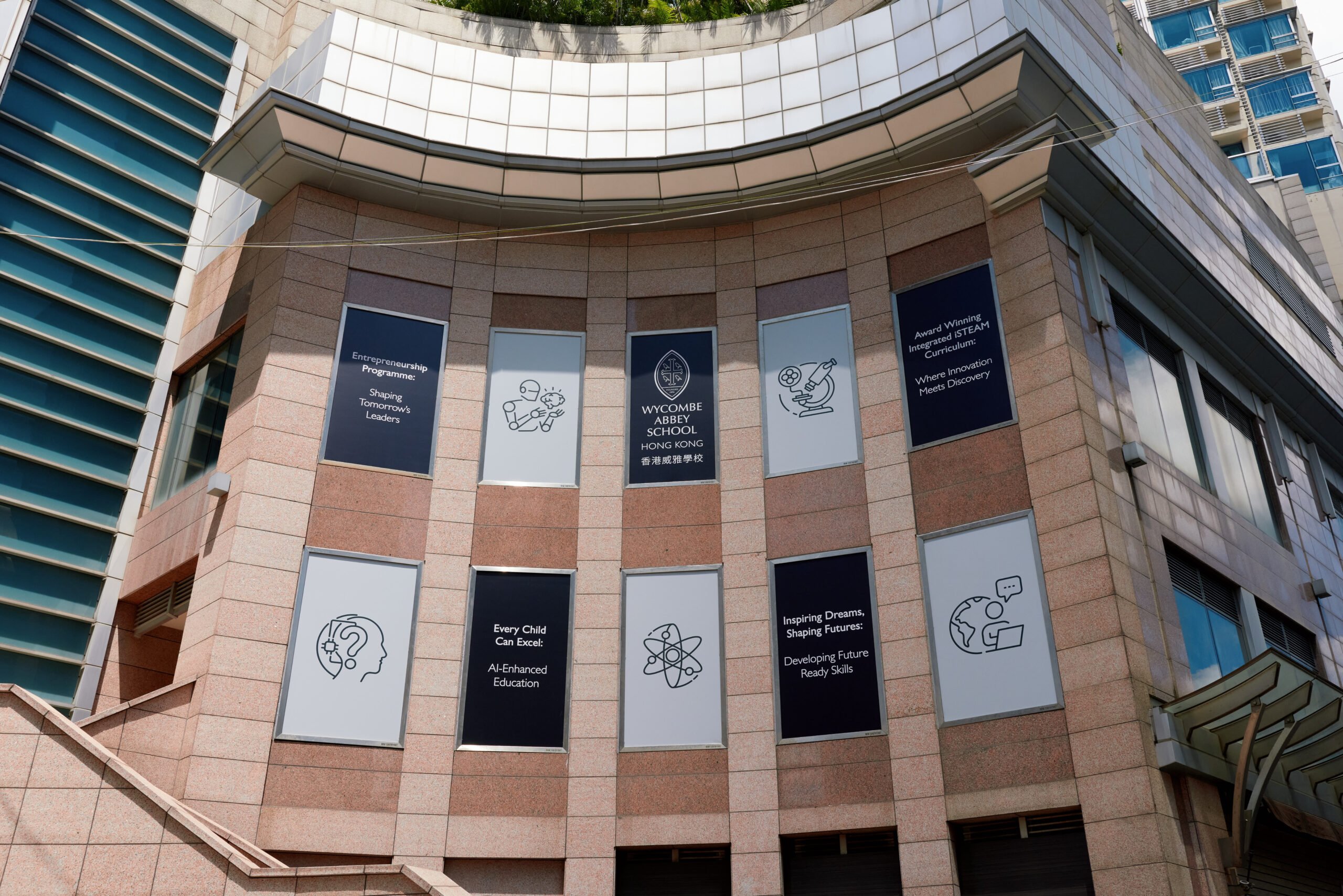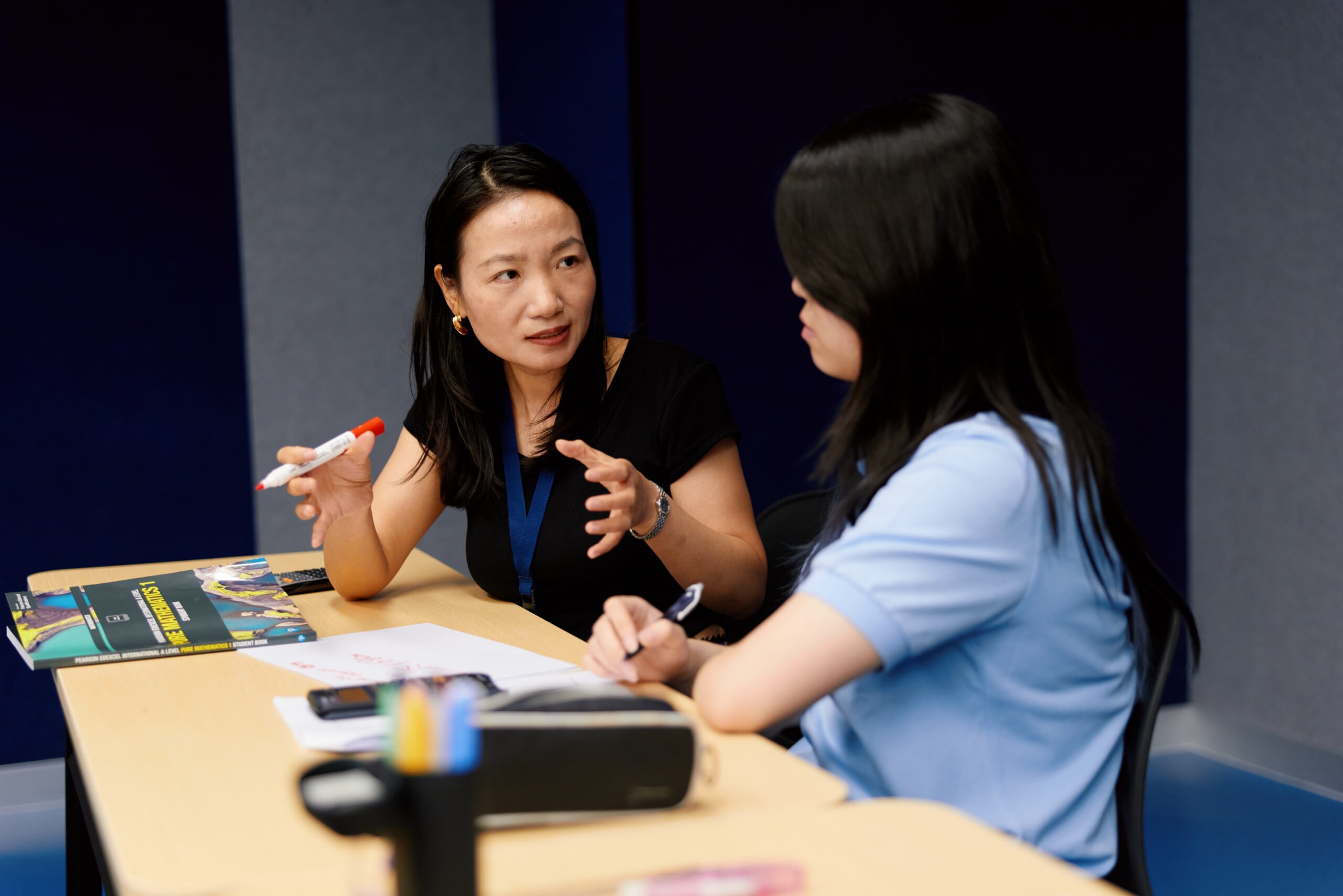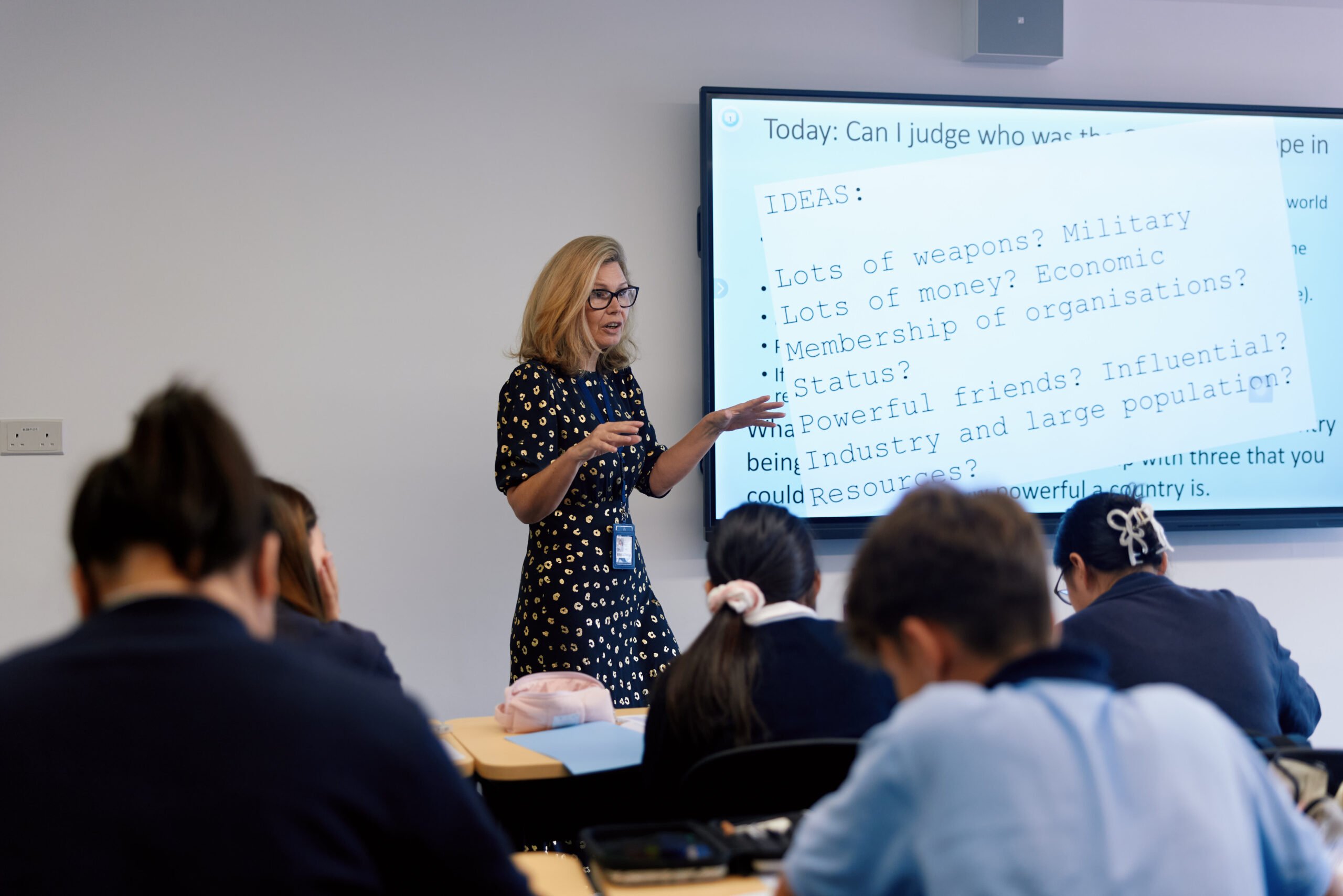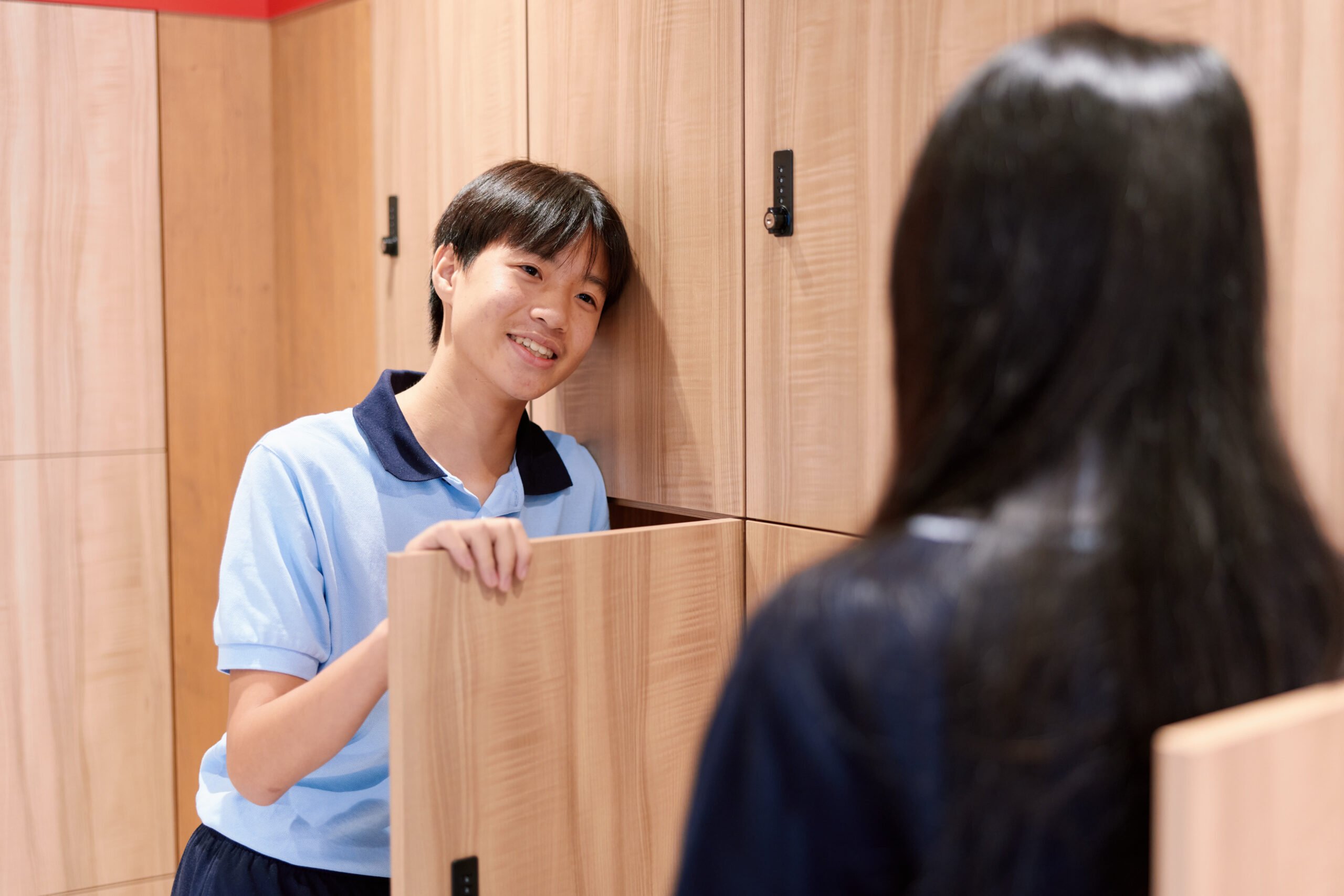
As technology reshapes how we live, work, and connect, education stands at a defining crossroads: how do we prepare young people for a world still being written? Artificial intelligence, automation, biotechnology, and digital innovation are reshaping industries at a pace once unimaginable. According to global studies, nearly two-thirds of today’s primary-school pupils will eventually work in roles that do not yet exist.
In this context, the question facing every parent, educator, and policymaker in Hong Kong is no longer simply “How do we prepare children for exams?” but “How do we prepare them for a world we cannot yet imagine?”
At Wycombe Abbey School Hong Kong (WASHK), we believe the answer lies in nurturing self-motivated, independent learners — young people who approach uncertainty with confidence, creativity, and purpose.
Katelin van Strijp, Assistant Head Academic (Prep School) and Year 5 Class Teacher:
“In a world where the jobs our students will one day aspire towards may not yet exist, our responsibility as educators extends far beyond delivering content. While foundational knowledge remains important, it is key to develop students who are critical thinkers who can adapt quickly, communicate effectively, and approach uncertainty and challenges with confidence.”
The Future of Work: From Knowledge to Adaptability

The careers of tomorrow will not be defined by static knowledge, but by the ability to adapt, learn, and lead through change. Data analysts, renewable-energy engineers, digital ethicists, and professions yet to emerge will all require flexibility, empathy, and cross-disciplinary thinking.
Hong Kong’s education system, long celebrated for academic rigour, now has an opportunity to champion innovation — helping students become independent, self-directed learners who see change as possibility rather than disruption.
A forward-thinking school environment should help students become:
- Independent learners, capable of seeking out new knowledge throughout life.
- Creative problem-solvers, able to connect ideas across disciplines.
- Collaborators and communicators, confident in diverse teams and global contexts.
- Ethical leaders, who approach technology and progress with integrity and empathy.
Katelin van Strijp, Assistant Head Academic (Prep School) and Year 5 Class Teacher:
We want students who can learn how to learn. By teaching students to be resilient, creative problem-solvers who can thinking critically and flexibly, we prepare them to face uncertainty with confidence. Encouraging students to see change not as a challenge, but as an invitation to innovate is essential.”
These are not “soft skills” — they are the future skills that define resilience and leadership.
Why Hong Kong Has an Opportunity to Lead

Hong Kong’s unique position as a global crossroads — where East meets West, and innovation meets tradition — makes it an ideal environment to reimagine education. Parents increasingly recognise that academic results alone will not guarantee long-term success. What matters most is how students can apply their learning in unfamiliar situations, solve complex problems, and work across cultures.
Forward-looking international schools in Hong Kong are already beginning to shift their focus towards this kind of future-ready education. They are integrating hands-on learning, interdisciplinary inquiry, and digital literacy within the framework of rigorous academics — ensuring that students leave not only well-qualified, but well-equipped.
Katelin van Strijp, Assistant Head Academic (Prep School) and Year 5 Class Teacher:
“Hong Kong has the potential to lead Asia in redefining what education looks like for the 21st century. With its rich cultural diversity and global outlook, students are exposed to diverse perspectives and opportunities from a young age. This environment fosters global citizenship and entrepreneurial thinking. Our entrepreneurship programme is one way that we are further preparing our students with these skills.”
At Wycombe Abbey School Hong Kong, we see this as an extraordinary opportunity: to combine the depth and discipline of a British education with the innovation, and global outlook that define Hong Kong itself.
What Future-Ready Learning Looks Like

To prepare students for jobs that do not yet exist, schools must teach in ways that cannot be automated. That means cultivating human qualities that technology cannot replicate — creativity, empathy, moral reasoning, and leadership.
In practice, this can mean:
- Inquiry-based learning, where pupils explore questions rather than memorise answers.
- Project-based collaboration, where they apply knowledge to real-world challenges.
- Integration of STEAM disciplines, bridging the analytical with the artistic.
- Entrepreneurial thinking, which encourages initiative and risk-taking.
- Global citizenship education, developing understanding and compassion across cultures.
Katelin van Strijp, Assistant Head Academic (Prep School) and Year 5 Class Teacher:
“We must create learning environments where curiosity is encouraged, failure is seen as part of growth and collaboration skills are essential. Students need to explore real-world problems and engage with interdisciplinary thinking. One way we are doing this at Wycombe Abbey School Hong Kong, is by incorporating iSTEAM into our school curriculum, equipping our students daily with the skills needed to become ‘Future-ready’.”
At the heart of this approach is the goal of building self-motivated, independent learners who take ownership of their progress and believe their ideas can make a difference.
The Role of Values in an Uncertain Future

As technology advances, one thing remains constant: character matters. The leaders of tomorrow will need more than intellect — they will need integrity, empathy, and resilience.
A truly future-focused education should balance excellence with humanity — producing not only capable professionals, but compassionate citizens.
Katelin van Strijp, Assistant Head Academic (Prep School) and Year 5 Class Teacher:
“In times of uncertainty, values provide guidance. As we prepare students for an unpredictable future, we must also guide them in developing a strong moral framework. Values are the foundation for everything our students will become, helping them to make ethical decisions, build trust and lead with purpose in whatever field they enter.”
Looking Ahead: From School to Society

For Hong Kong to remain globally competitive, its schools must nurture innovation while staying grounded in values and cultural understanding. This is not about abandoning academic rigour, but expanding its definition — to include the skills, dispositions, and perspectives that young people will need to thrive in unpredictable times.
Education must evolve from preparing students for tests to preparing them for life.
Katelin van Strijp, Assistant Head Academic (Prep School) and Year 5 Class Teacher:
“The best way to prepare students for the future is not to predict it, but to empower them to shape it. Students who enter the world and job sector with a mindset of innovation, collaboration and global awareness, will contribute to a more thoughtful, inclusive and forward-thinking world.”
As educators, we cannot predict every job that will exist in 2050 — but we can prepare the next generation to create them.
Learn more about Wycombe Abbey School Hong Kong and contact us to book a tour or speak with our admissions team.